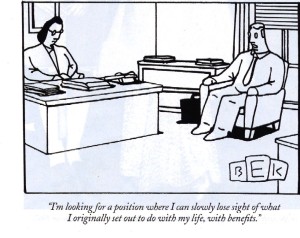Your resume is amazing and your cover letter is even better…which landed you the interview. Which you nailed, they clearly loved you. You sent a lovely thank you note. And it’s been over a week and you haven’t heard anything. Now what?
First, let me start with a story…we had an open position for a paralegal at my firm a few years ago. One candidate who applied called the day we received his resume to see if we got it. We had. He called two days later to find out the status of his resume. We hadn’t reviewed it. I went on vacation the next week and my voicemail clearly stated “I am away until Monday, Date X” yet he still left two messages following up. Before I even had a chance to review his resume, I was already annoyed at him. The lesson here is don’t be that guy.
Now back to the question at hand…how to follow-up after an interview? First, when to follow-up. Unless you know there is a shorter time frame they are going to make a decision, I would recommend following up within 1 -2 weeks. 10 days is my personal rule of thumb – 1/2 way between 1-2 weeks. Second, do not follow-up more than twice. If they haven’t contacted you after this, they’re not going to. And third, keep looking after the interview for a job! I think it’s a common tendency to relax and wait until you hear back from the last interview before you gear up your search again, convinced you will get the job. Well, if you don’t you’ve just wasted a couple of weeks. Keep looking until you have the job! For some further advice, check out these articles:
Job Interview Follow-Up Do’s and Dont’s

